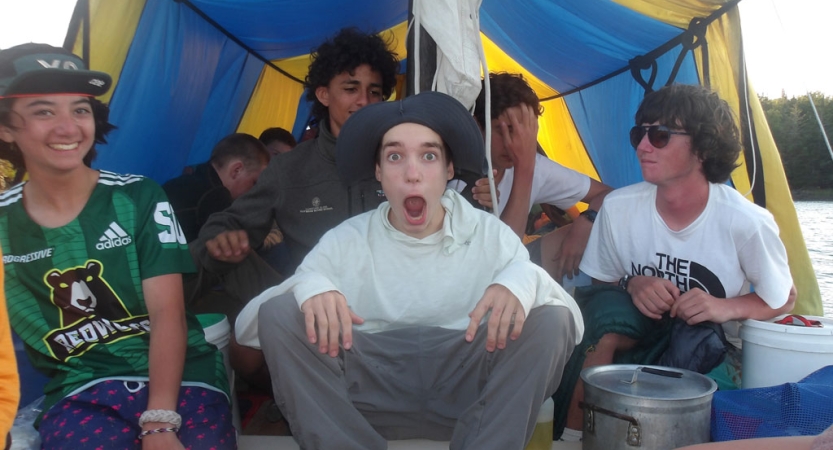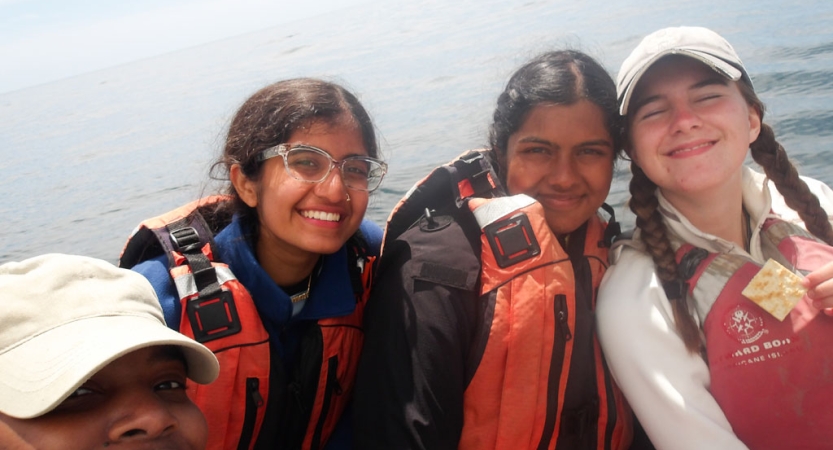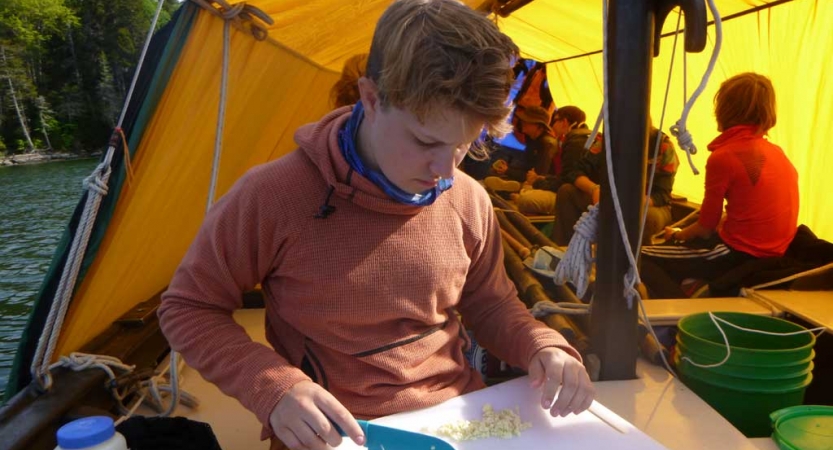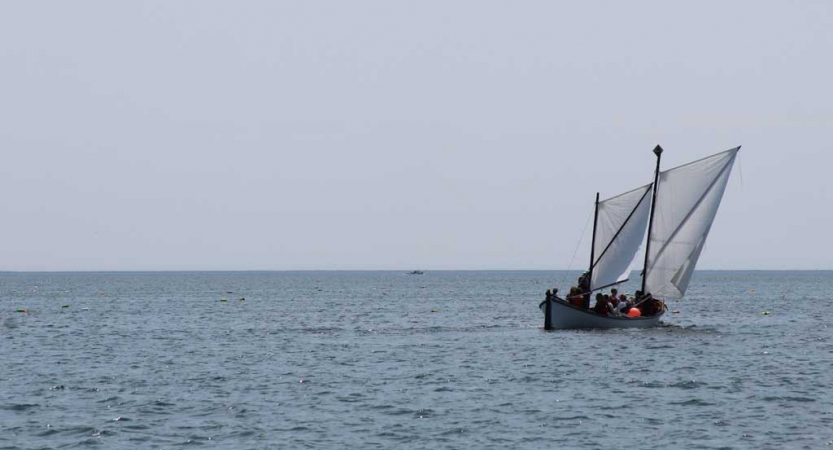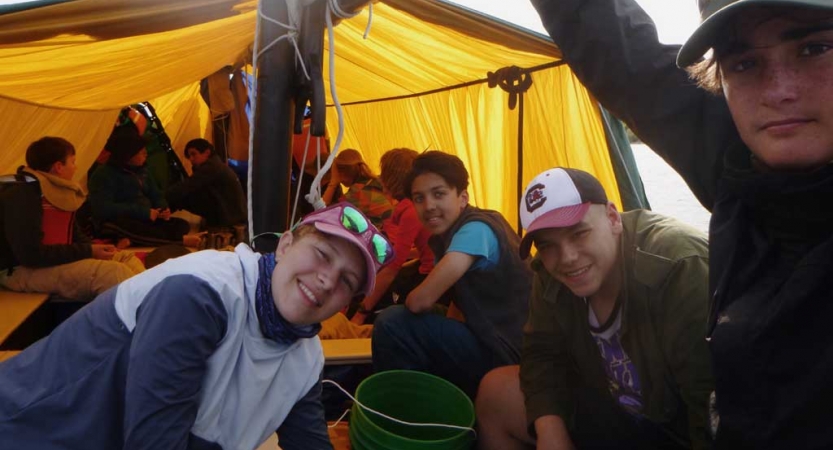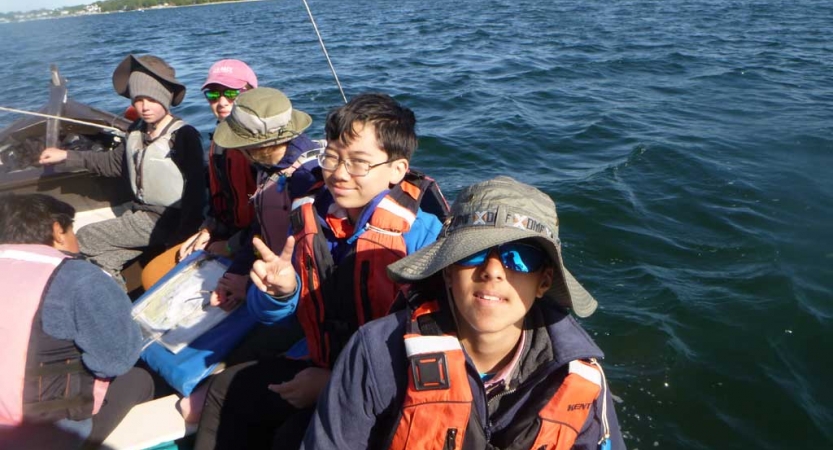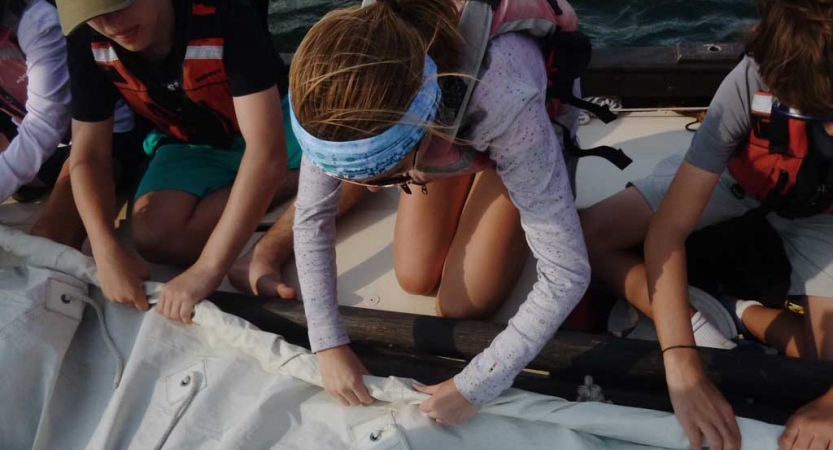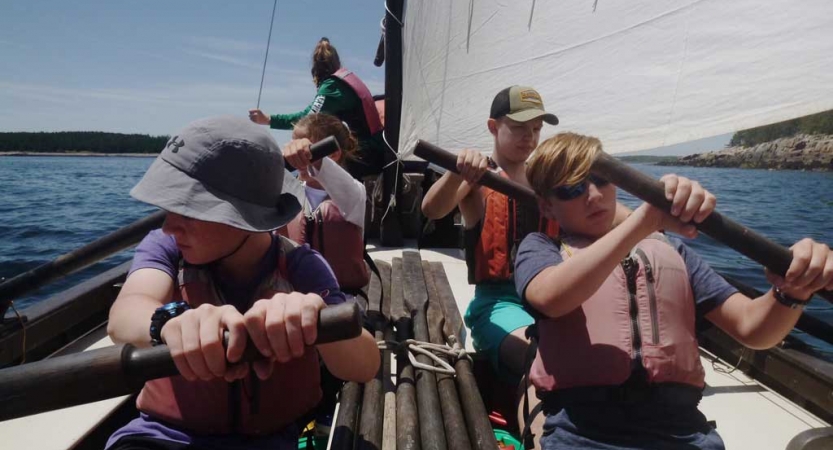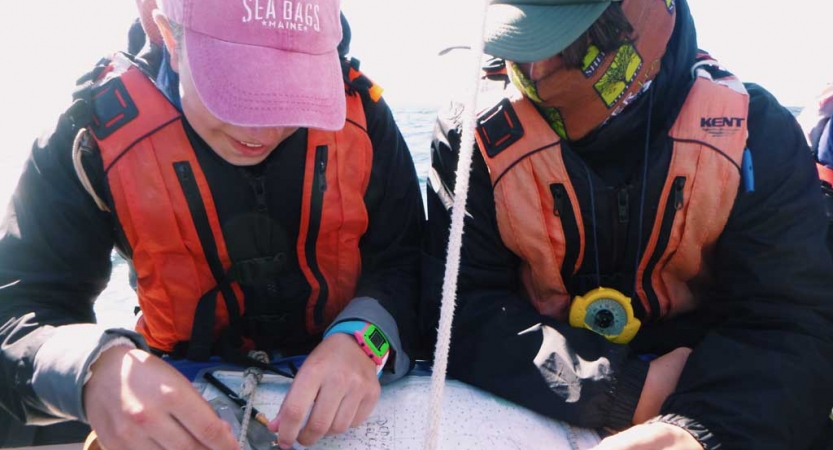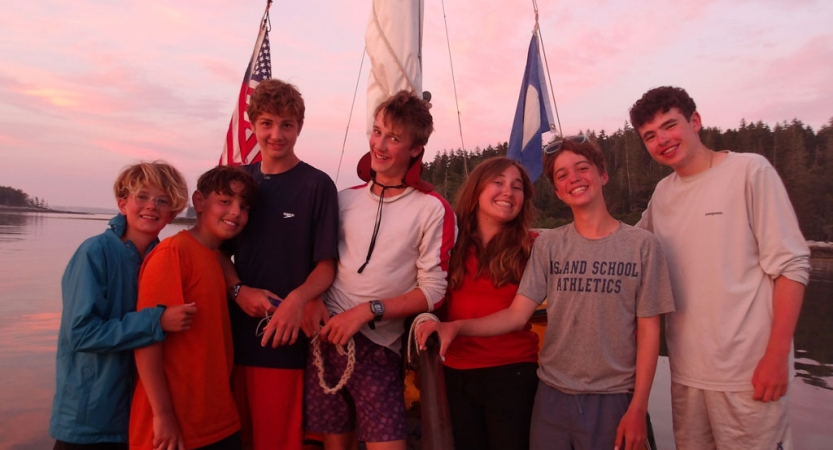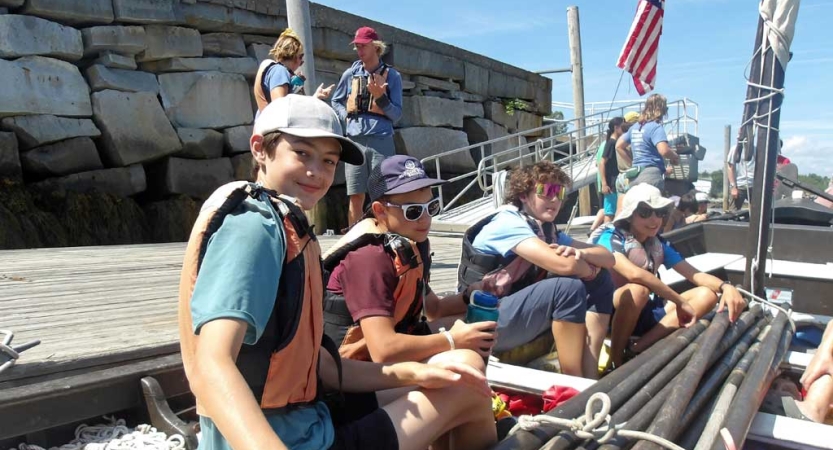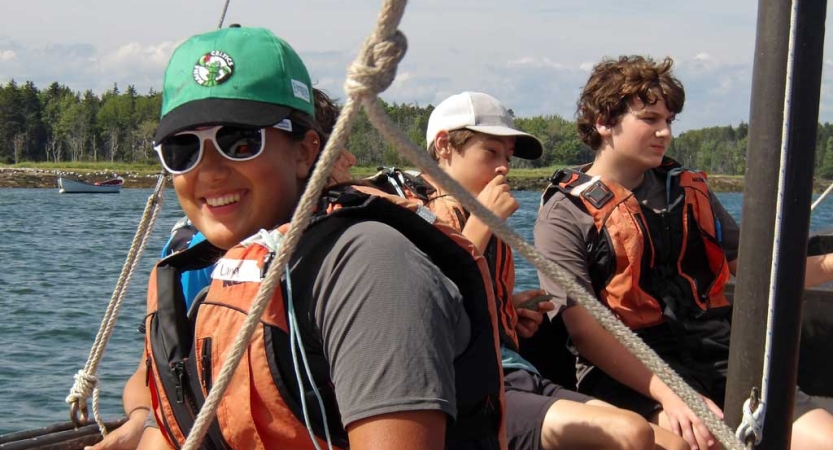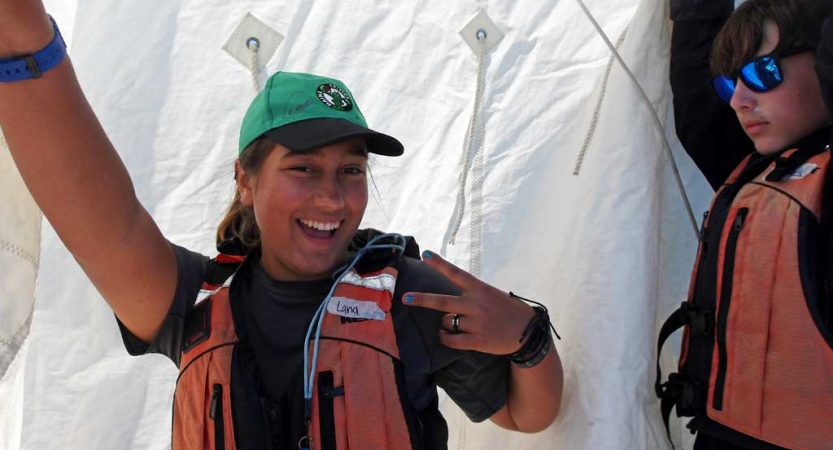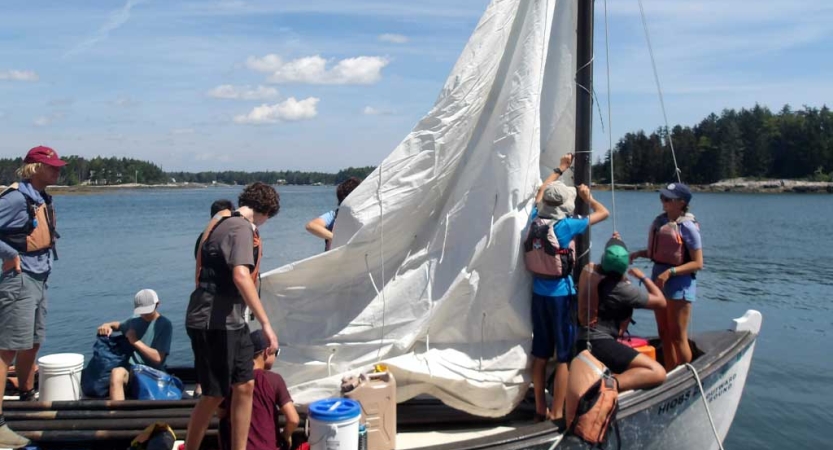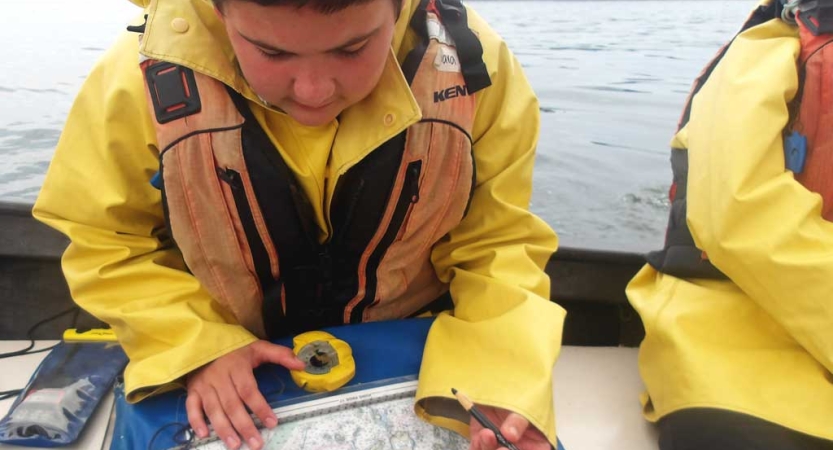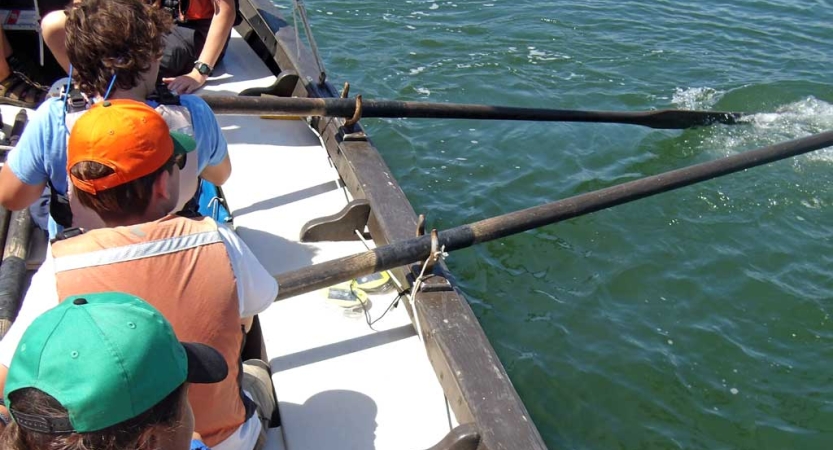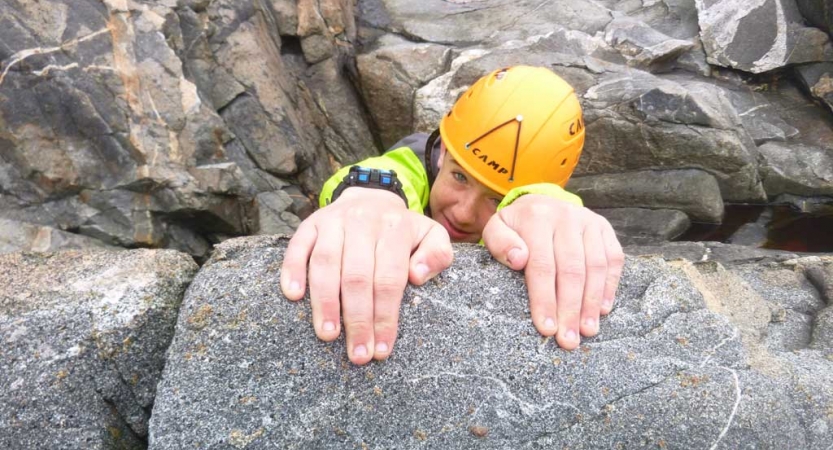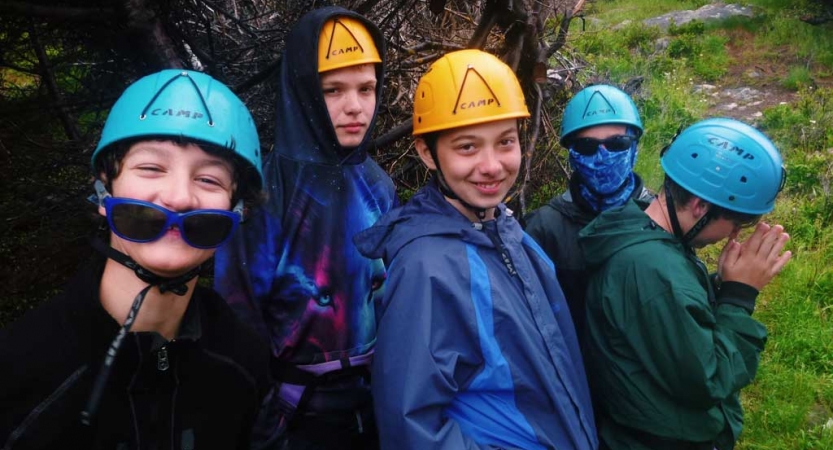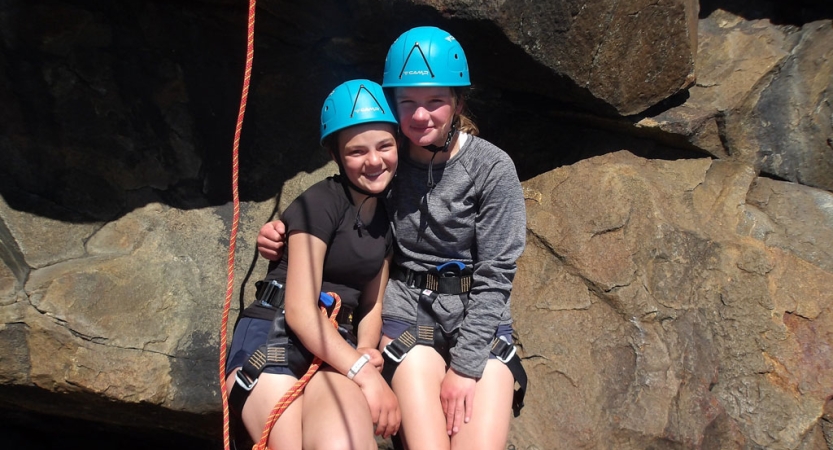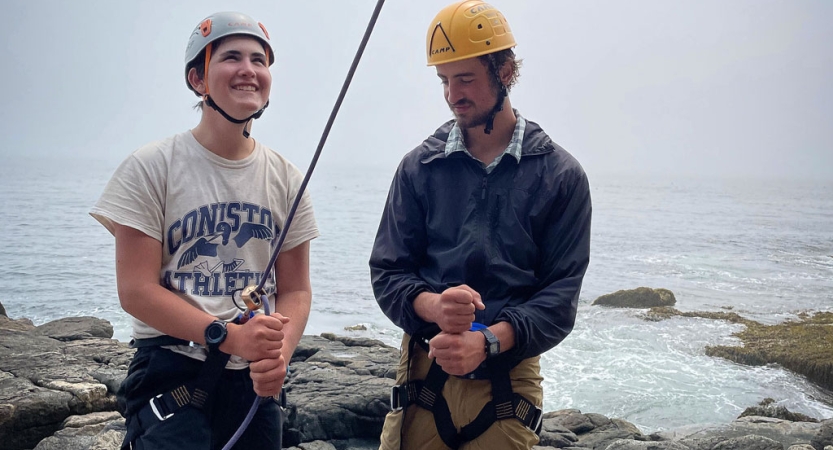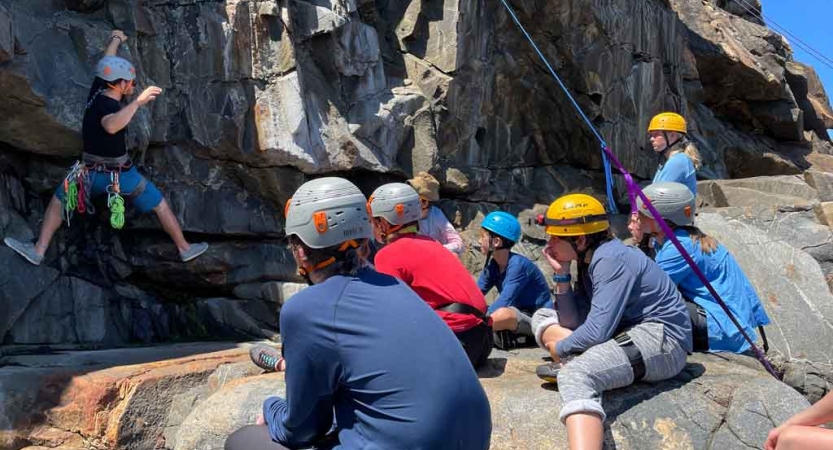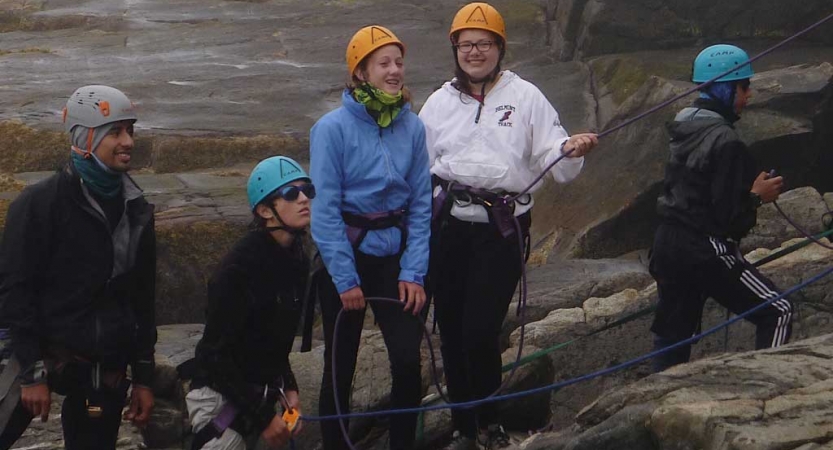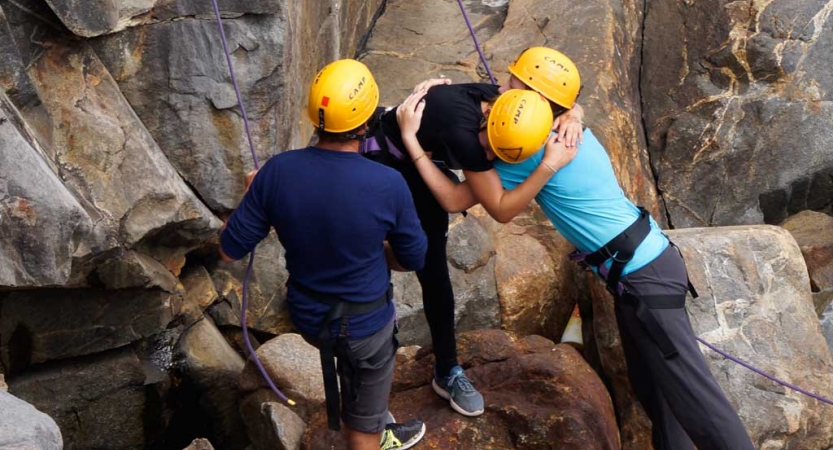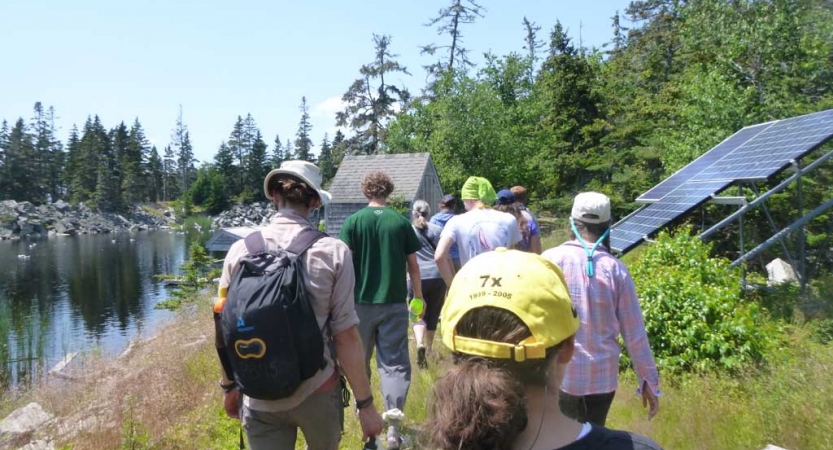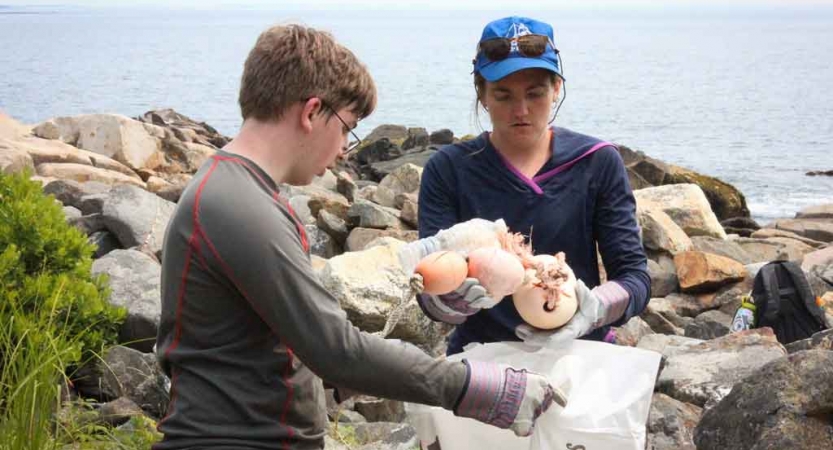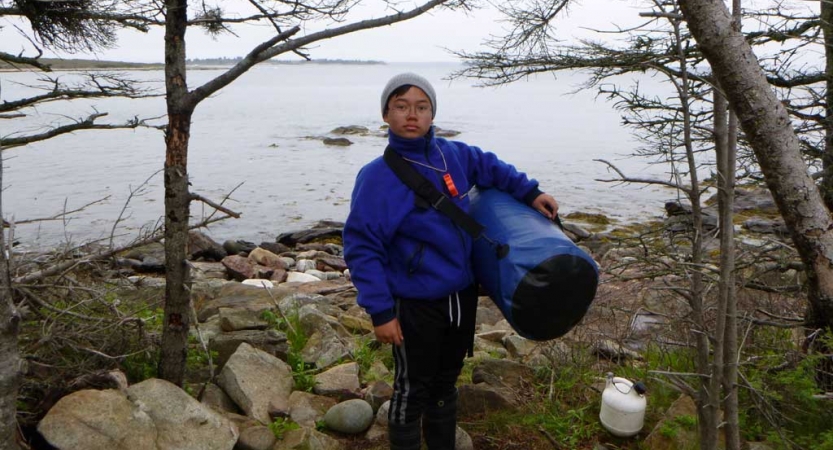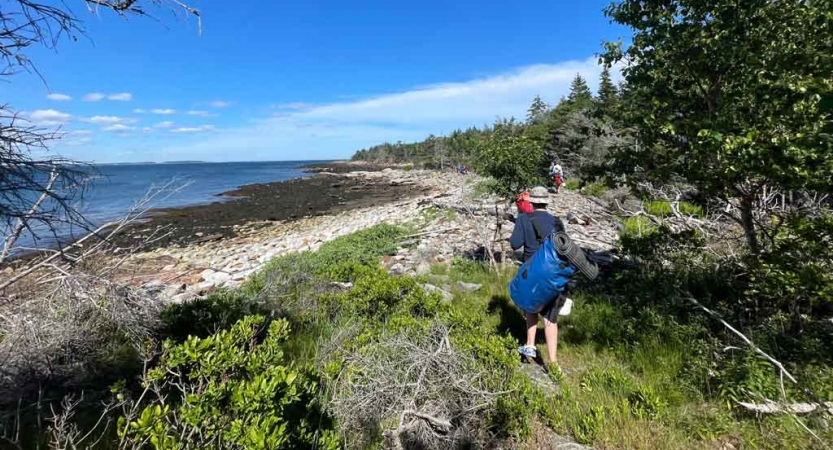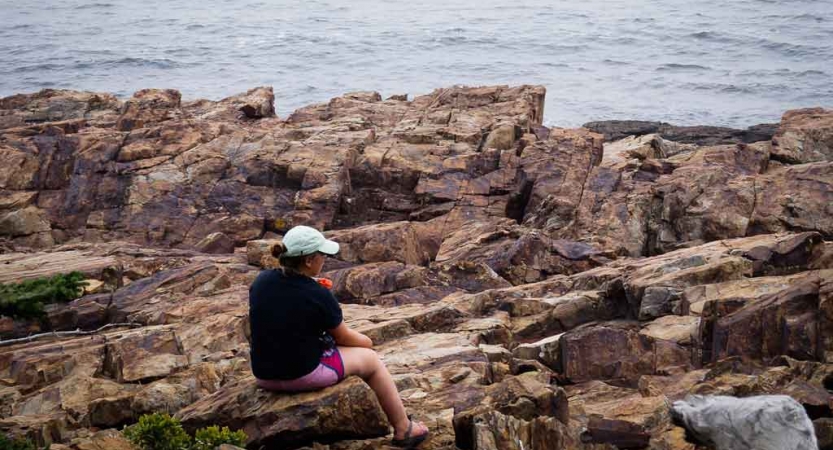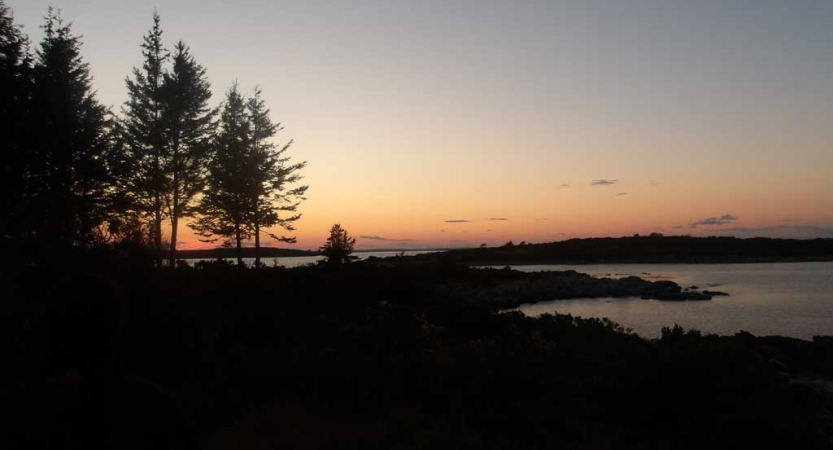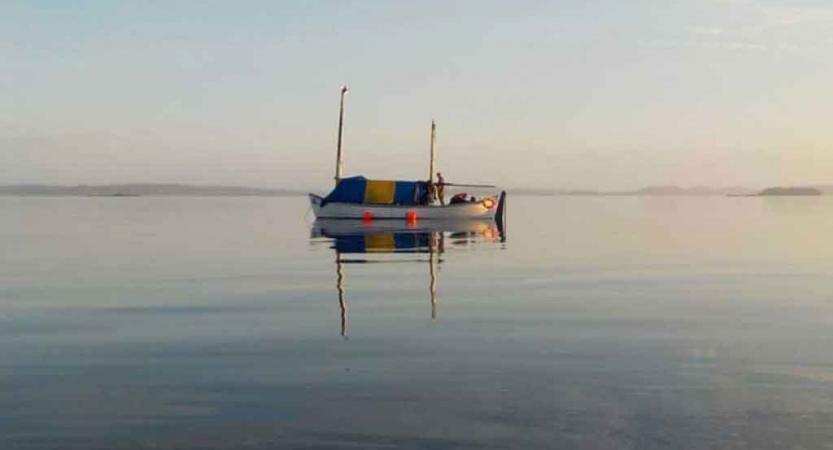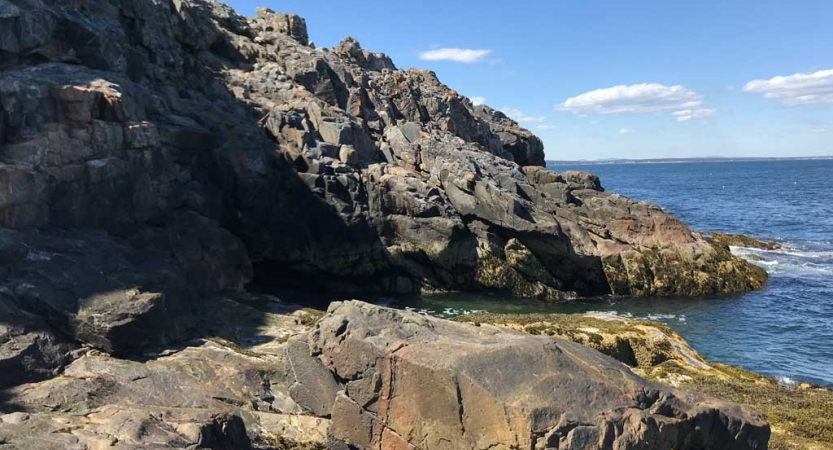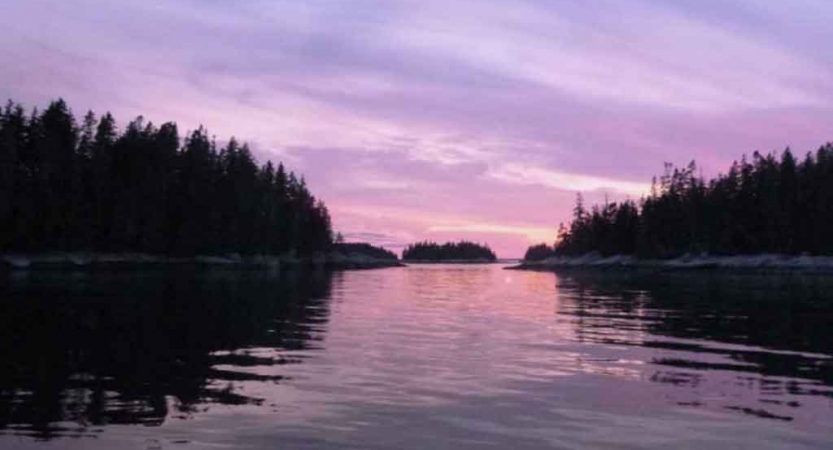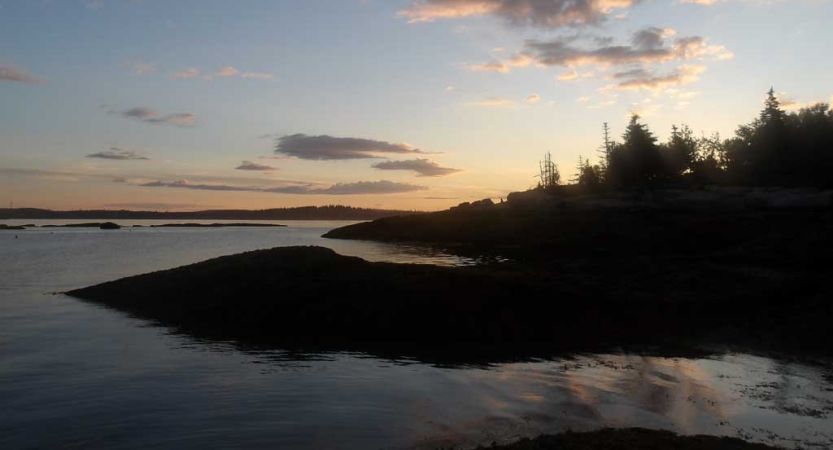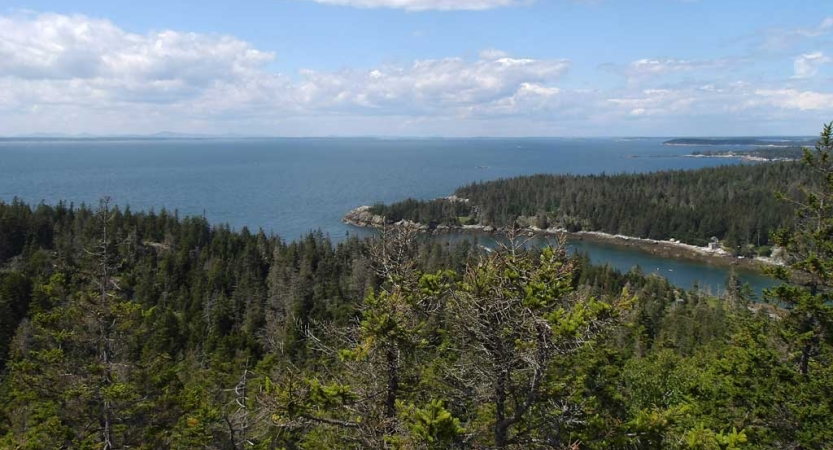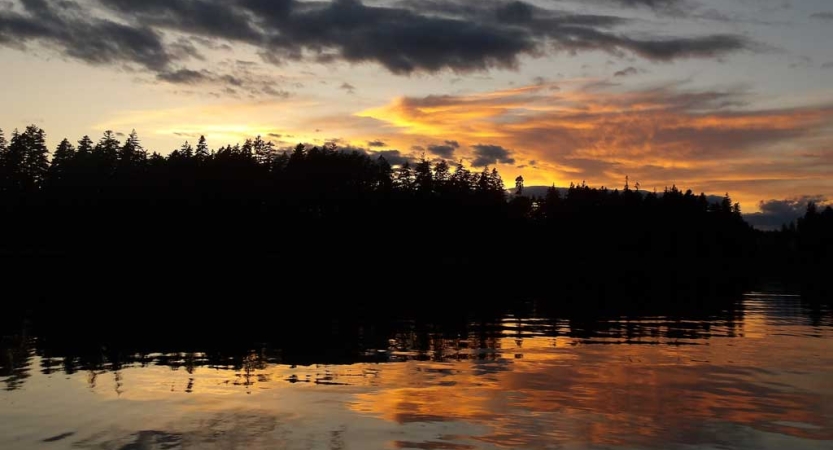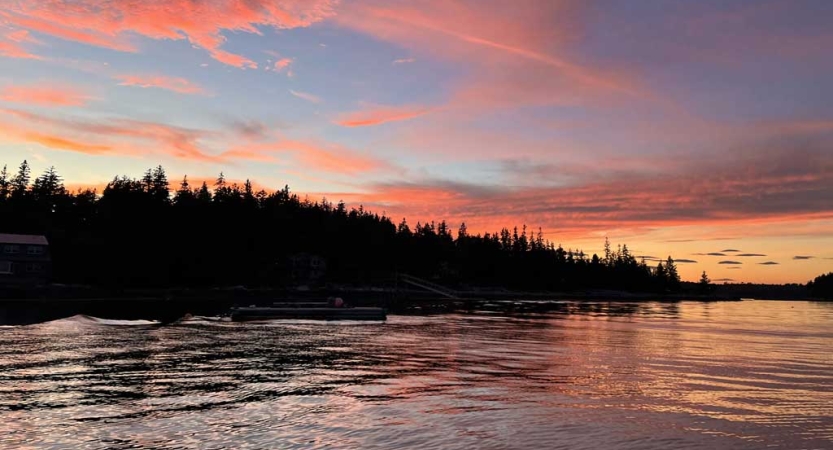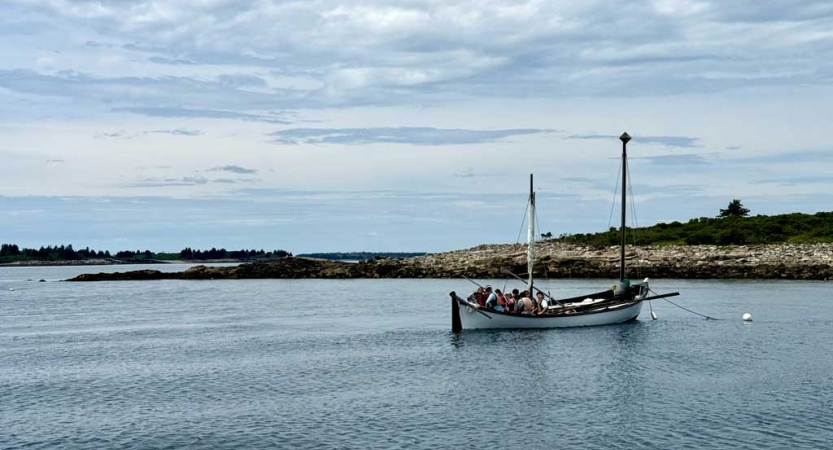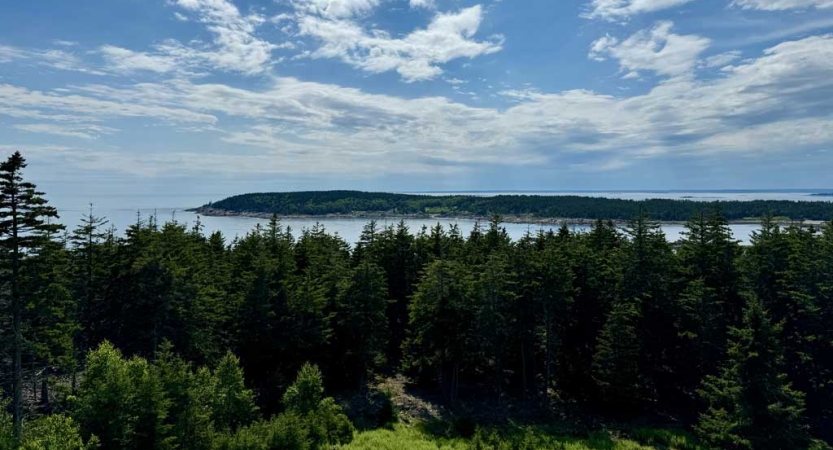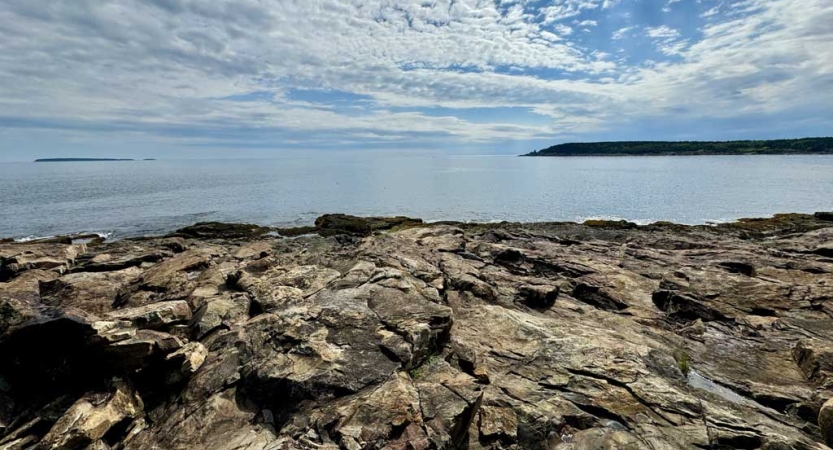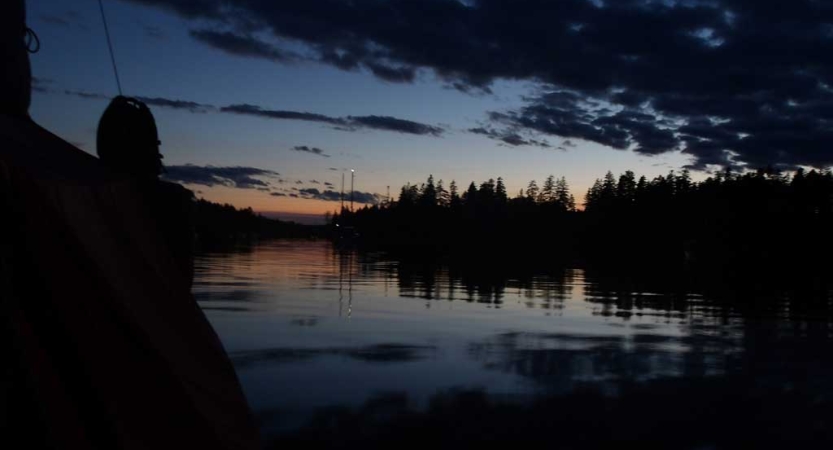-
EXPEDITIONS
-
Southwest Rafting
-
Yosemite Alpine Backpacking
-
Potomac River Canoeing and Appalachian Backpacking
-
Penobscot Bay & Islands Sailing
-
Water Gap Backpacking, Canoeing & Leadership
-
Potomac River Canoeing and Appalachian Backpacking
-
Water Gap Backpacking, Canoeing & Leadership
-
Maine Coast Sailing
-
Southwest Rafting & Backpacking
-
High Sierra Alpine Backpacking
-
Blue Ridge Mountains Backpacking & Whitewater Canoeing
-
Boundary Waters Canoeing for Adults
-
Blue Ridge Mountains Backpacking & Rock Climbing for Adults
-
High Sierra Alpine Backpacking & Rock Climbing for Adults
-
Pathfinder Boundary Waters Canoeing & Backpacking
-
Pathfinder Southwest Canyoneering & Rafting
-
Pathfinder Blue Ridge Mountains Backpacking, Whitewater Canoeing & Rock Climbing
-
Pathfinder Rocky Mountains to Canyonlands
-
Blue Ridge Mountains to Florida & Patagonia Leadership Semester
-
Maine to Bahamas Leadership Semester
-
Canyonlands to Joshua Tree Leadership Semester
-
Costa Rica and Panama Leadership Semester
-
Penobscot Bay & Islands Sailing for Girls
-
Blue Ridge Mountains Backpacking & Rock Climbing for Families
-
High Sierra Alpine Backpacking & Rock Climbing for POC
-
Colorado Rockies Alpine Backpacking for Girls
-
Blue Ridge Mountains Backpacking & Rock Climbing for LGBTQ+ Teens
-
High Sierra Backpacking & Rock Climbing for Boys
-
Ten Thousand Islands Sea Kayaking for Veterans
-
Blue Ridge Mountains Backpacking & Rock Climbing for Women Veterans
-
Ten Thousand Islands Canoeing for Veterans
-
Backpacking
-
Canoeing
-
Canyoneering
-
Dog Sledding
-
Mountaineering
-
Rafting
-
Rock Climbing
-
Sailing
-
Sea Kayaking
-
Service
-
Snow and Ice
-
EXPEDITION FINDER
CLASSIC FOR MIDDLE SCHOOL
FEATURED CLASSIC FOR MIDDLE SCHOOL
FEATURED CLASSIC FOR HIGH SCHOOL
FEATURED CLASSIC FOR ADULTS
FEATURED PATHFINDER
FEATURED SEMESTER
FEATURED OUTDOOR EDUCATOR
OUTDOOR EDUCATOR OVERVIEW INTERCEPTFEATURED INTERCEPT
INTERCEPT OVERVIEW AFFINITY GROUPSFEATURED AFFINITY GROUPS
FEATURED VETERANS
FEATURED ACTIVITIES
FEATURED SCHOLARSHIPS & ACADEMIC CREDIT
SCHOLARSHIPS & ACADEMIC CREDIT OVERVIEW PLANNING COMMUNICABLE DISEASE PRACTICESFEATURED COMMUNICABLE DISEASE PRACTICES

Program Overview
Skills
- Belaying a Climber
- Campcraft
- Constellation Identification
- Food Preparation and Cooking
- Knots
- Map and Compass
- Natural History
- Navigation
- Safety and Risk Management
- Sailing Techniques
- Self Care
- Tides and Currents
- Camaraderie
- Character
- Communication
- Empathy
- Leadership
- Responsibility
- Self Confidence
- Service
Let’s Connect!
Penobscot Bay & Islands Sailing
Explore the rugged shoreline, intricate rivers, and spruce-covered granite islands of the Eastern Seaboard’s wildest region on this sailing expedition.
This nine-day sailing course takes place in Maine’s unique marine environment and focuses on seamanship, exploring the natural world, and learning to function in a team setting. Our 30-foot open sailboat serves as both home and classroom. You’ll learn beginning, intermediate, and advanced skills in chart and compass navigation, small boat seamanship, weather observation, and anchoring. Engage in regular group discussions, reflect on each day’s progress, and share leadership and onboard responsibilities, so that every crew member is part of planning each day. As you live and work closely together, you’ll learn far more than seamanship. The habits learned and strengthened on this sailing expedition will serve you for life.
Program Overview
Skills
- Belaying a Climber
- Campcraft
- Constellation Identification
- Food Preparation and Cooking
- Knots
- Map and Compass
- Natural History
- Navigation
- Safety and Risk Management
- Sailing Techniques
- Self Care
- Tides and Currents
- Camaraderie
- Character
- Communication
- Empathy
- Leadership
- Responsibility
- Self Confidence
- Service
UPCOMING COURSES
What is this?
For detailed information on course availability statuses and what they mean, click here.
Course # HWMS-2521
Age 13 - 14
Days 9
Cost $4,000
Dates 6/18/2025 - 6/26/2025
JOIN WAITLIST
Once a course has reached capacity, three waitlist positions become available. To join a course’s waitlist, click “Join Waitlist” to begin the application process. A $500 deposit is required. This $500 deposit includes a $150 non-refundable application fee and a $350 tuition payment. The $350 tuition payment is refundable only if you cancel your waitlist application or if an open position does not become available. If a position does become available, the applicant will be applied to the open position and the Application and Cancellation Policies of the Regional Outward Bound School will be followed, including forfeiture of the $500 deposit if you cancel 90 days or less prior to the course start date.
Waitlist applicants are encouraged to complete all required admissions documents while awaiting an open position. Positions may become available up to two weeks prior to the course start date. Applicants may only apply to one course. We recommend applying to a course with open positions instead of a course that is accepting waitlist applications. If you have questions, please call 866-467-7651 to speak with one of our Admissions Advisors.
What is this?
For detailed information on course availability statuses and what they mean, click here.
Course # HWMS-2523
Age 13 - 14
Days 9
Cost $4,000
Dates 8/4/2025 - 8/12/2025
APPLY NOW – Almost Full
This means there are three or fewer currently available spots left on a course. To secure your spot click Apply Now to begin an application!
What is this?
For detailed information on course availability statuses and what they mean, click here.
Thank you for your interest in Outward Bound!
This course starts within the next week. Please call us at 866-467-7651 to assess the possibility of applying for this course!
APPLY NOW
This means a course has several open spots and is actively processing applications.
APPLY NOW – Almost Full
This means there are three or fewer currently available spots left on a course. To secure your spot click Apply Now to begin an application!
JOIN WAITLIST
Once a course has reached capacity, three waitlist positions become available. To join a course’s waitlist, click “Join Waitlist” to begin the application process. A $500 deposit is required. This $500 deposit includes a $150 non-refundable application fee and a $350 tuition payment. The $350 tuition payment is refundable only if you cancel your waitlist application or if an open position does not become available. If a position does become available, the applicant will be applied to the open position and the Application and Cancellation Policies of the Regional Outward Bound School will be followed, including forfeiture of the $500 deposit if you cancel 90 days or less prior to the course start date.
Waitlist applicants are encouraged to complete all required admissions documents while awaiting an open position. Positions may become available up to two weeks prior to the course start date. Applicants may only apply to one course. We recommend applying to a course with open positions instead of a course that is accepting waitlist applications. If you have questions, please call 866-467-7651 to speak with one of our Admissions Advisors.
CALL TO APPLY
This means a course is very close to its start date. Although it is unlikely to secure a spot this late, you can call the National Admissions office at 866-467-7651 to discuss your options.
COURSE IS FULL
When a course has reached maximum capacity, meaning all spots and the three waitlist spots are occupied, a course will read “Course Is Full.” This means applications are no longer being accepted.
CLOSED
As a course nears its start date, the availability status may read “Closed.” In this event, a course roster has been finalized and applications are no longer being accepted or processed.
This course starts in . Are you sure you would like to proceed?
Make new friends, sleep under the stars, and learn skills for outdoor adventure. Outward Bound’s Classic expeditions are designed to empower middle and high school students with the tools and confidence they need to navigate life’s ever-changing tides. By taking on challenges outdoors, students discover their strengths, make meaningful connections and return home with the skills needed to embark on bold futures.
- Develop Connections. Bond with your crew by having fun and engaging in meaningful conversations.
- Learn Outdoor Skills. Cook delicious meals outside, navigate with a map, and build a backcountry campsite.
- Practice Leadership and Teamwork. Learn to be both a leader and team player.
- Build Confidence that Lasts a Lifetime. Discover your unique strengths.
Traditional 30-foot sailboats encourage teamwork and leadership like no other classroom. On an open boat with no cabin and no engine, students live closely together, using only wind and oars as propulsion. As they rotate responsibilities, students learn the crafts of maneuvering under sail, coastal navigation, rowing, and living aboard a small open boat. At night, students sleep on deck under a tarp, taking turns at anchor watch under brilliant night skies.
Students will learn to:
- Adjust sails properly for sailing at different angles to the wind and execute sailing maneuvers like tacking and gybing, which turn the boat through the wind
- Navigate using a chart and compass to arrive accurately at the day’s destination using techniques that include taking bearings, dead reckoning, triangulation and sounding
- Move the boat under oars, coordinating all of the rowers' movements so that the oars splash as one and precisely maneuver in and out of secluded anchorages
- Live (cook, eat, sleep, work and learn) as a team aboard a small open sailboat
The granite that made the Maine Coast famous as a source of building material a century ago now provides the setting for some outstanding rock climbing or rappelling from the sea cliffs. Students learn to use climbing equipment, tie knots, climb and belay each other, while Instructors provide overall supervision of the site. Climbing hones and develops balance, coordination, flexibility, and grace on the rock. Climbing presents many individual challenges for students, while the team must work together to set systems up, communicate clearly and support each other throughout the climb.
Rock climbing on sailing courses is dependent on the weather and other conditions
Service projects are often incorporated into Outward Bound courses through coordination with local land managers, conservation groups, and government or social service agencies. While on expedition, students are encouraged to practice service to the environment and their team by sharing responsibilities and following Recreate Responsibly ethics throughout the course.
The Solo experience provides an important break from the rigors of the expedition and gives students the opportunity to reflect on their Outward Bound experience. With enough food and equipment, students will set up camp at sites of their own, using the wilderness skills learned during the first half or two-thirds of the course. The time students spend on Solo depends on the length of the course. On one-week courses, Solo is four to 12 hours long; on courses three weeks or longer, Solo will be up to 72 hours.
Often located along beautiful shorelines or peaceful rivers, campsites are chosen to offer as much solitude as possible (yet be within emergency whistle-signaling distance of other group members). Most students spend their Solo time journaling, drawing, or just thinking and resting as they process lessons of the course to focus on their goals for the future. Instructors check on each participant at least daily.
Strengthen a sense of self and feel what it means to connect to others. A nine-day course for 13- to 14-year-olds is the perfect introduction to the Outward Bound experience. Supportive Instructors teach the skills of wilderness travel and guide the formation of the group into an expedition team. As the students’ abilities grow, the Instructors intentionally and progressively challenge them to take on more responsibilities, try out more leadership roles, and develop a heightened sense of self and purpose. Under the close supervision of caring Instructors, students are encouraged to share ideas, experiment, triumph…and sometimes fail. While safety is conscientiously maintained, students may feel moments of frustration, disappointment, cold, and fatigue. At times, the Instructors coach young teens to review their choices, weigh the results, decide what changes to make, and try again. This teaches decision-making, responsibility, and resilience, ensuring the group knows that all successes are truly theirs!
Through these condensed experiences, students are provided space to express their opinions and make real choices while developing their individual identities and resistance to peer pressure. While on the expedition, youth support each other and participate in social activities that strengthen empathy and belonging. Students become comfortable living and working together in the wilderness and leave feeling inspired to take on real challenges. They return ready to fully participate and positively engage at home, at school and in their communities.
The essence of an Outward Bound course is student autonomy. During the first third of a course (a phase called “training expedition”), the Instructors are very present in the group. They teach outdoor skills and the technical aspects of the activities, and they guide the students as they form a team. In the middle third of the course (called “main expedition”), the Instructors take a step back so students may step forward. Students begin to teach what they’ve already learned to each other, and they experiment with applying basic skills to bigger challenges. The Instructors continue to coach and support as the students practice leadership roles. When the group meets a situation, environment or activity they haven’t learned about, the Instructors jump back in and teach. Each time this happens, the group reaches competency more quickly. By the last third of the course (“final expedition”), students are the stars of the show. They are applying what they know, leading each other, setting goals, and solving problems collaboratively. The Instructors are close by and ready to step back in to prevent a safety issue, but they will let students find their own resilience when they make mistakes, and ensure they feel the full spotlight of success when they meet their goals.
The coast of Maine, with its intricate and indented shoreline, is a unique segment of the North Atlantic seaboard. It is renowned among sailors for its picturesque beauty, iconic lighthouses, abundant bays and harbors, rocky islands and quiet coves. Our cruising area covers nearly 200 miles of the Maine coast, with countless rivers, bays and islands to explore. The rocky, spruce-covered islands are the summits of a prehistoric mountain range; many generations of inhabitants have made their livelihoods here. Evidence left behind on the islands reveals the historic presence of indigenous Abenaki camps, pre-colonial fishing communities, post-colonial timber and farming operations, and early 20th-century granite quarries. Cold, nutrient-rich waters flow from the Canadian Maritimes and make the Gulf of Maine home to a wide range of sea birds, seals, porpoises and whales. These regions are the ancestral lands of the Wabanaki Confederacy, which includes the Abenaki/Abénaquis, W∂last∂kwiyik (Maliseet), Penobscot, and Passamaquoddy nations.
OTHER COURSES YOU MAY LIKE


Maine Island Expedition
Courses: 3 dates available Ages: 13-14 Length: 7 Days Cost: $2,659 Details & Dates

Penobscot Bay & Islands Sailing for Girls
, , Courses: 1 date available Ages: 13-14 Length: 9 Days Cost: $4,000 Details & Dates

Water Gap Backpacking & Rock Climbing
Courses: 1 date available Ages: 12-14 Length: 8 Days Cost: $2,900 Details & Dates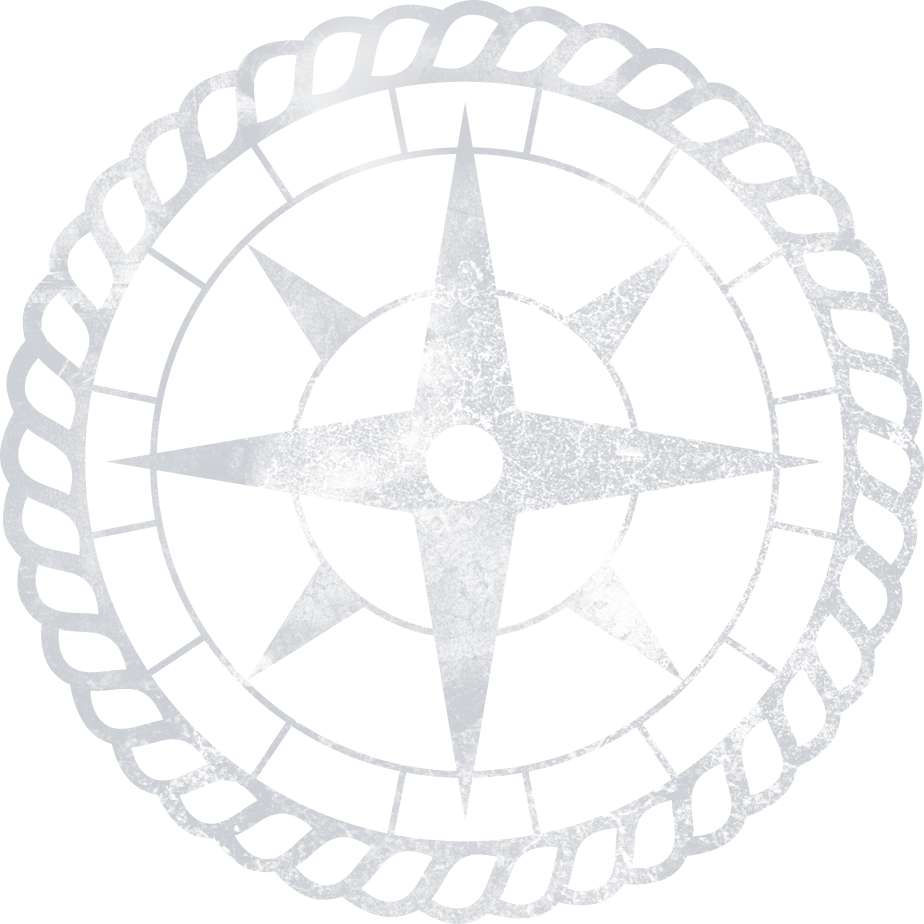
Getting Started
If you are ready to enroll on a course click the enroll button next to the course you wish to select or you can enroll over the phone by speaking with one of our Customer Success Specialists (toll-free) at 866-467-7651.
To secure your spot on a course you must submit an enrollment form and $500 deposit that is applied toward the total cost of the course and includes a $150 non-refundable enrollment processing fee.


